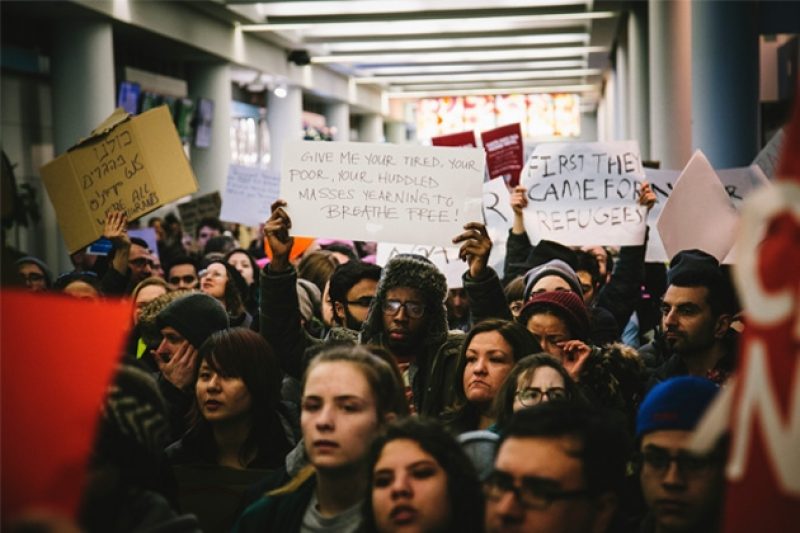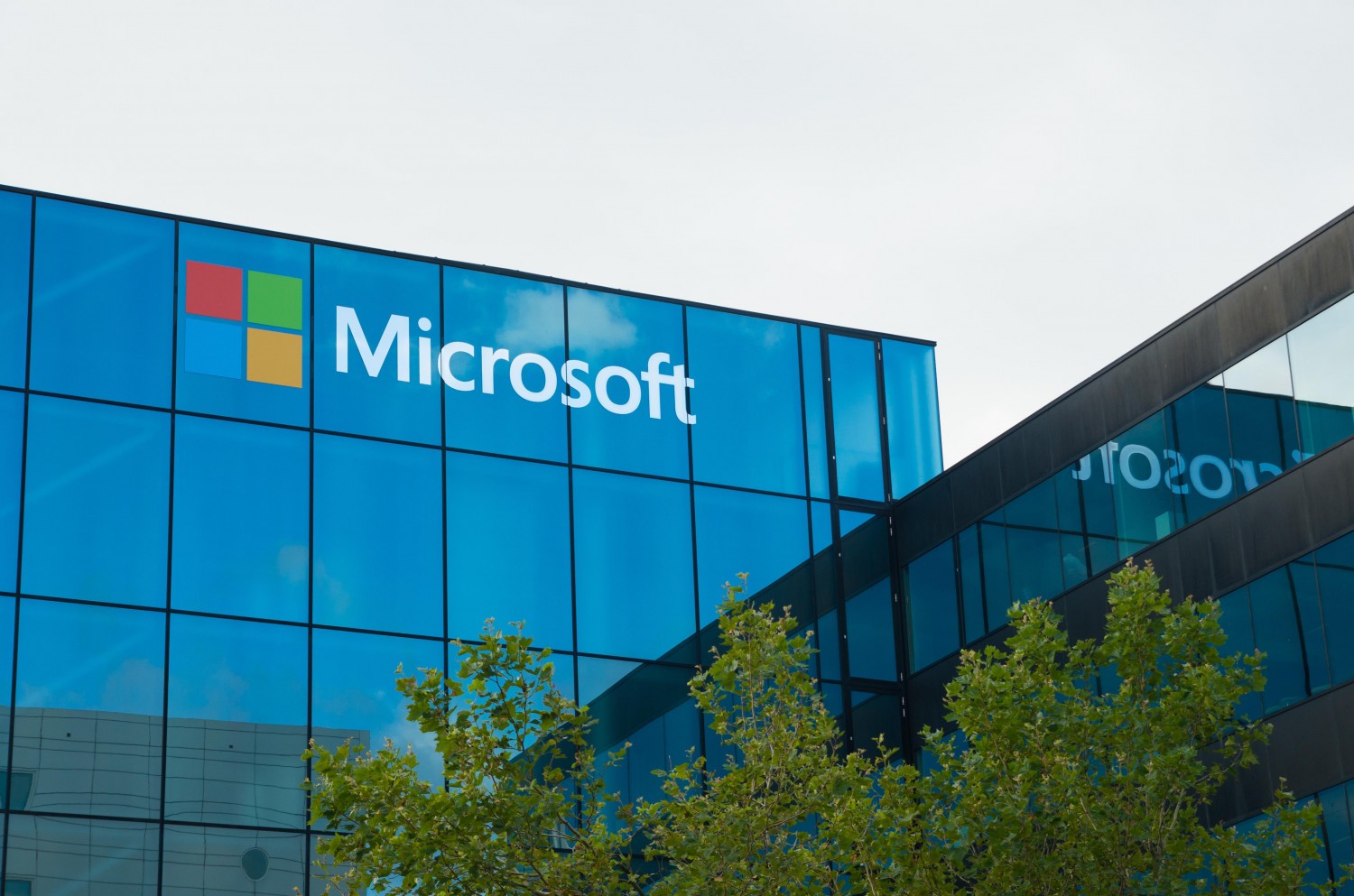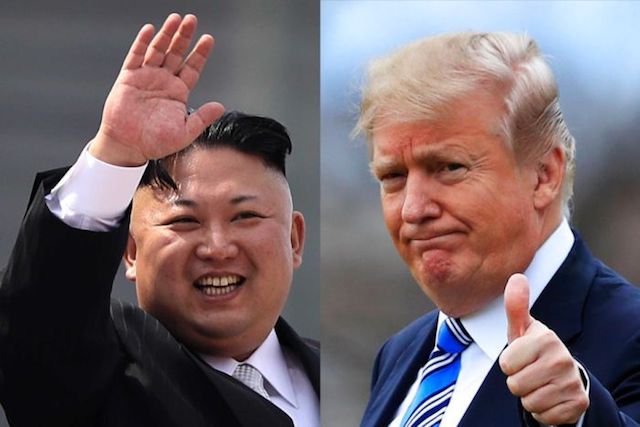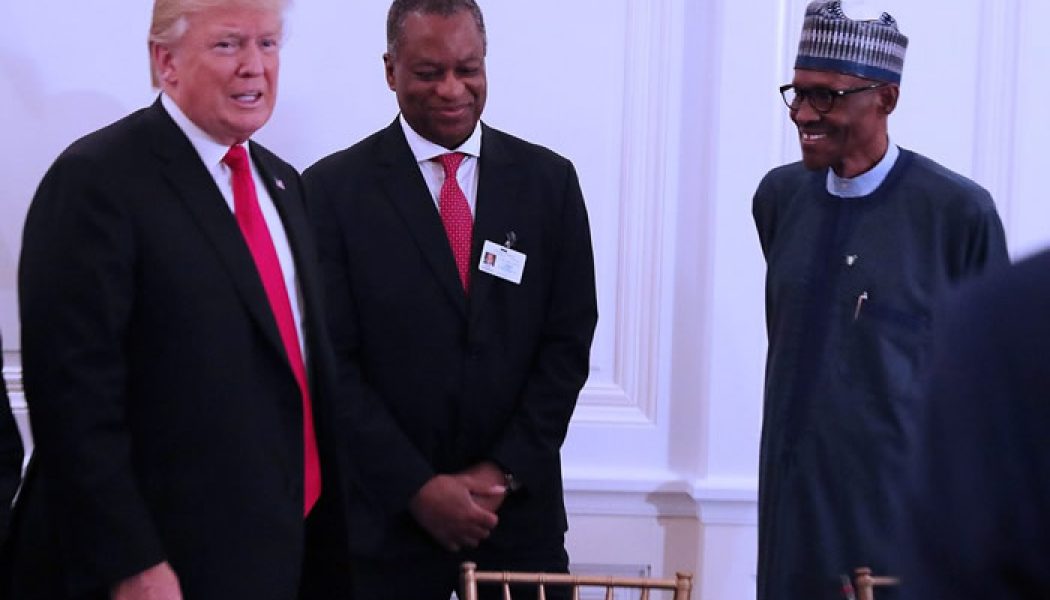News
U.S Muslim Ban Stays: These 10 tweets speaks of the devastation
Published
8 years agoon
By
Olu Emmanuel
The Tweets
In 2015, Trump justified his Muslim ban by referencing Japanese internment camps. He once told a story about Muslims being shot with bullets dipped in pig’s blood. No matter what they call it, this is a Muslim Ban, and America’s promise of religious liberty has been broken.
Isaac Chotiner
@IChotiner
Mitch McConnell criticizing the Muslim ban, then getting Gorsuch on the Court to uphold it, and then celebrating the decision is such a perfect metaphor for both the establishment GOP paving the way to Trumpism, and then ideologically embracing it fully.
Leah McElrath
@leahmcelrath
Setting aside the horrors of Muslim Ban particulars for a moment, this ruling appears to give a nod to Trump that this SCOTUS views him as having virtually unfettered powers. THAT is VERY troubling. Even if that’s not what SCOTUS meant, that’s what will be understood by Trump.
Ambassador Rob
@RobertoWinsSher
Trump Muslim ban is and will never be about national security issues. It’s definitely about discrimination against immigrants and their religion. This is all Mitch McConnell fault for stealing Merrick Garland Supreme Court nominations. Mitch McConnell is a complete traitor!
Shaun King
(@ShaunKing)
Devastating news. The Supreme Court has just upheld Trump’s Muslim Ban – basically citing that he has the power to do such a thing. This never had anything to do with American safety. It was/is all about bigotry and Islamophobia. Shame on Trump and shame on this nation.
Joy Reid
(@JoyAnnReid)
Muslim ban Separating migrant parents and children, even babies Planned internment camps Puerto Rico & USVI left to suffer Realigning America with dictators and spurning our allies Black athletes forced into patriotic displays Trade wars Trump has been president 17 months.
Linda Sarsour
(@lsarsour)
Sitting in my daughter’s high school graduation in tears. I have to tell my daughter who has been asking me for updates that #SCOTUS upheld the Muslim and Refugee Ban. That they decided on the side of xenophobia and racism. Devastated. #StandWithMuslims #NoMuslimBanEver
ACLU
(@ACLU)
BREAKING: SCOTUS has upheld Trump’s Muslim ban. This is not the first time the Court has been wrong, or has allowed official racism and xenophobia to continue rather than standing up to it. History has its eyes on us — and will judge today’s decision harshly. #NoMuslimBanEver
JewishAction
(@jewishaction)
It’s crucial that we show up in support of Muslim communities today and resist this administration’s racism + xenophobia. We must #StandWithMuslims. Together we say: #NoMuslimBanEver. Feel free to download and bring this sign to a protest near you:
So the US Supreme Court has ruled in favor of the Trump administration’s travel ban targeting people from several Muslim-majority countries.
Lower courts had deemed the ban unconstitutional, but the US top court has reversed this decision in a 5-4 ruling announced on Tuesday.
The ban prohibits most people from Iran, Libya, Somalia, Syria and Yemen from entering the US.
The court’s reversal is viewed as a victory for the Trump administration.
But the travel ban has been widely criticised by refugee and human rights groups.
Chief Justice John Roberts wrote the opinion for the conservative majority, which said the travel ban was “squarely within the scope of Presidential authority”.
He also rejected arguments that it was based on the fact that the targeted countries were mostly Muslim.
“The Proclamation is expressly premised on legitimate purposes: preventing entry of nationals who cannot be adequately vetted and inducing other nations to improve their practices,” Chief Justice Roberts wrote. “The text says nothing about religion.”
Shortly after the Supreme Court released its decision, President Donald Trump shared the news from his Twitter account.
In Justice Sonia Sotomayor’s dissent with Justice Ruth Bader Ginsburg, she argues the court failed to uphold the religious liberty guaranteed by the First Amendment.
“It leaves undisturbed a policy first advertised openly and unequivocally as a ‘total and complete shutdown of Muslims entering the United States’ because the policy now masquerades behind a facade of national-security concerns.”
The dissent also states that “a reasonably observer would conclude that [the ban] was motivated by anti-Muslim animus”.
What does this ruling mean?
The ruling has reversed the decision of a lower court that put the travel ban on hold.
Trump travel ban: All you need to know
The current version of the ban prevents most immigrants, refugees and visa holders from five Muslim-majority countries – Iran, Libya, Somalia, Syria and Yemen – as well as North Korea and Venezuela from entering the US.
But the restrictions on North Korea and Venezuela were not part of the legal challenge.
The ban allows for waivers on a case-by-case basis, but applicants who cannot afford an attorney to go through the waiver process will likely be unable to immigrate to the US, immigration advocates say.
Justice Stephen Breyer noted in his dissenting opinion that the state department reported that only two waivers were approved out of 6,555 applicants during the first month of the travel ban.
The high court has been issuing a number of decisions this week, including a ruling against a California law that required clinics to inform women of the availability of abortions paid for by the state.
The Court ruled that the law violated the free speech rights of Christian facilities.
Despite the controversial nature of Donald Trump’s travel ban, there were more abortion rights activists outside the Supreme Court on Tuesday morning than immigration protesters.
Perhaps it’s because abortion has been a contentious legal battle for decades, while the president’s travel directive had been in effect, and out of the headlines, for months.
Attention in recent weeks has been on migrants coming across the southern US border, not visitors and prospective residents from countries like Libya, Iran, Yemen and Syria.
Nevertheless, this marks a significant victory for Mr Trump – and for presidential power to set immigration policy in general – albeit by the narrowest of margins.
The five court justices said they took the president’s order on its face, and separated it from his more bombastic anti-Muslim comments made on the presidential campaign trail and via Twitter.
The travel ban was implemented haphazardly at the start of the Trump administration and faced repeated setbacks from the US legal system. In the end, however, the president got his way – or at least enough of his way to claim success.
The third time turned out to be the charm.
What’s the reaction?
The White House issued a statement saying the ruling was “a tremendous victory for the American People and the Constitution”.
“In this era of worldwide terrorism and extremist movements bent on harming innocent civilians, we must properly vet those coming into our country.”
Immigration lawyer Cyrus Mehta told the BBC that the majority opinion “gave in to President Trump’s hate and bigotry and will be viewed as a blemish”.
Media captionResidents of the Republican-leaning Staten Island, New York City, told the BBC last year they “trust Trump to keep us safe”
“Congress might overrule this decision so that a future president will not have a blank check to block the entire people of a nation – from babies to grandmothers – out of hate, fear or bigotry. That is our only hope for redemption as a nation,” he said.
Attorney General Jeff Sessions said in a statement that the decision was “critical to ensuring the continued authority of President Trump – and all future presidents – to protect the American people”.
Omar Jadwat, director of the American Civil Liberties Union (ACLU) Immigrant Rights Project called the ruling one of the court’s “great failures”.
“We must make it crystal clear to our elected representatives: If you are not taking action to rescind and dismantle Trump’s Muslim ban, you are not upholding this country’s most basic principles of freedom and equality.”
What’s the context?
The administration said that the ban was the result of carefully considering national security interests, but critics argued it was fulfilling a campaign promise for “a total and complete shutdown of Muslims entering the United States”.
Mr Trump’s ban has seen several iterations. Iraq and Chad were banned in previous versions. Iraq was removed for having “a close co-operative relationship with the US” and Chad for having “sufficiently improved its practices”.
The state of Hawaii had challenged the ban and a federal judge blocked its implementation.
Critics have noted that major attacks such as the 9/11 New York attacks, the Boston marathon bombing and the Orlando nightclub attack were carried out by people from countries not on the list, such as Saudi Arabia, Egypt and Kyrgyzstan, or by US-born attackers.
You may like
Trending

 Health5 days ago
Health5 days agoDeclassified CIA memo explored concealing mind-control drugs in vaccines

 Entertainment7 days ago
Entertainment7 days agoSimi addresses resurfaced 2012 tweets amid online backlash

 Crime6 days ago
Crime6 days agoSenior police officers faces retirement after Disu’s appointment as acting IGP

 Education1 week ago
Education1 week agoPeter Obi urges JAMB to address registration challenges ahead of exams

 Health1 week ago
Health1 week agoNAFDAC issues alert on suspected revalidated SMA Gold infant formula

 Comments and Issues7 days ago
Comments and Issues7 days ago20 Critical Fixes to Save Nigeria’s Democracy from Electoral Fraud

 Football7 days ago
Football7 days agoMartínez ruled out of Everton clash with calf injury

 Latest6 days ago
Latest6 days agoICPC yet to respond to El-Rufai’s bail request as arraignment date looms







